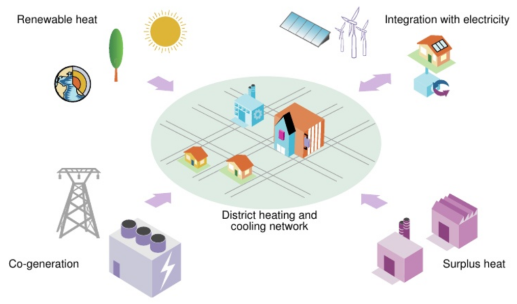Smart Cities addresses a variety of topics from the perspective that smart and innovative solutions are required for the built environment. Implementing these solutions is challenging; life in a city is dynamic because of the numerous participants that are involved, all with different needs, interests, and expectations. Further challenges include the jumble of clear and unclear interaction of users, and the continuous developments in boundary conditions. Yet, on the other hand cities are quite static too, as it takes many years, many time-consuming administrative measures, and often judicial processes to implement a real reform. A process of 10 years from idea to implementation is rather the rule than the exception for urban changes.
Structure of the "Smart Cities" track
This track in the honors program consists mainly of projects suitable for teamwork. An ideal team is about 4-5 students who work independently on a self-selected project. The track believes that honors students get the best out of themselves when they are in the lead and challenged by a client who is questioning them about their own living environment. As a result, the assignments are not only appropriate for students from the Built Environment, but also students from all other departments have an excellent opportunity to contribute.
At the beginning of a year, the track will present 3-6 possible assignments. Each of these assignments has a specific client who intends to actually realize the project. After the initial explanation, students have the opportunity to familiarize themselves with the specific topics and may also contact clients. In the course of the first weeks, the specific assignment will be determined and also the composition of the teams will be established (in consultation with the track coordinator).
Examples of topics
Topics related to Smart Cities offer many challenges that can be approached from different angles; and various scenarios for future urban development can be considered in this honors track. The following list offers some examples. This is just a very small selection, however, and many more examples can be considered.
- Smart Energy
- Smart Environment
- Smart Mobility
- Smart Infrastructure
- Smart Technology
- Smart People, Smart Living
- Smart Healthcare
- Smart Economy
- Smart Decathlon Competition
These topics, together with a brief explanation can be downloaded here.

More information
Want to know more? Contact Floor van Schie, f.v.schie@tue.nl.